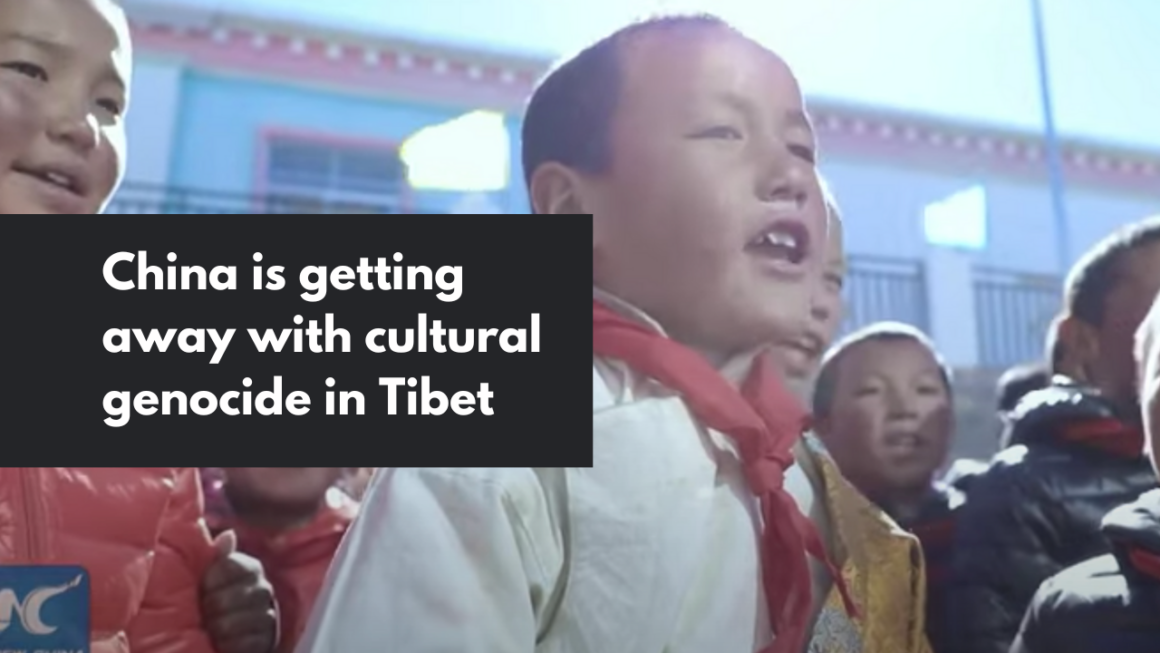Washington Post: Opinion | China is getting away with cultural genocide in Tibet
By Josh Rogin
Original article: https://www.washingtonpost.com/opinions/2023/11/01/china-tibet-identity-cultural-genocide/
“Genocide” is a powerful charge, often leveled at repressive regimes and warring states when they are openly mass murdering civilians. But some genocides take place slowly and methodically, without large-scale killing and outside the public’s view.
Tibetans are making a strong case that the Chinese government is attempting to wipe out their national identity — which can qualify as a type of genocide. China’s strategy depends on the world ignoring what it is doing. And, tragically, it seems to be working.
Since China invaded Tibet in 1950 (and later annexed it), Tibetan refugees have worked to defend human rights and national culture in their homeland. Led by the Dalai Lama, the movement is committed to nonviolence — to the extent that Tibetans would sooner self-immolate (159 times since 2009) than inflict harm on others.
Last week, the Central Tibetan Administration (the government in exile) and the Tibet Bureau in Geneva convened Tibetan leaders, activists and outside experts in Switzerland to confront a troubling reality: Their cause has lost visibility in a world rife with crises. At the conference, which I attended, researchers argued that Beijing is striving to erase Tibetans’ language, culture and very existence as a group.
The latest and most egregious example of this strategy is China’s drastic expansion of residential schools for Tibetan children. Using both inducements and threats, Chinese authorities have moved three-quarters of Tibetan children inside China into what Tibetans call “colonial boarding schools,” designed to deprive them of their cultural identities and to cultivate loyalty to the Chinese Communist Party. Students are taught almost exclusively in Chinese and barred from practicing their religion.
“They are growing up to be shaped and molded to be Chinese and to think like a Chinese person before a Tibetan,” Lhadon Tethong, director of the Tibet Action Institute, an advocacy and research organization, said at the conference. “Beijing’s logic is that once Tibetans’ identity as a distinct people is wiped out, that will be the end of the collective Tibetan consciousness and there won’t be a foundation from which to advocate for Tibetan rights as a group.”
Tethong’s institute estimated in a 2021 report that at least 800,000 Tibetan students aged 6 to 18(78 percent of the total) were living at boarding schools in Tibet. That’s compared to 22 percent of students in boarding schools in China overall. A panel of U.N. experts in January placed the current figure at “around a million.” There is also proliferation of residential preschools for Tibetan children as young as 4 and 5 years old.
So far, the international community’s response to the issue has been lackluster. Several Western governments have condemned Beijing’s use of boarding schools to assimilate minorities and the U.S. government has imposed visa restrictions on a few Chinese officials associated with the practice. Beijing’s response has been to organize highly sanitized tours for international visitors who won’t ask too many uncomfortable questions.
The boarding schools are just the latest indignity Beijing has perpetrated on Tibetans. Under the pretext of development, Chinese authorities have ravaged Tibet’s natural resources, above all water. Meanwhile, Beijing has been transferring large numbers of Han Chinese into Tibet and forcibly relocating Tibetans to dilute their population. The government is also subjecting all Tibetans to a highly intrusive surveillance and monitoring system that even collects their DNA without proper consent, according to Freedom House, which gave Tibet the lowest possible score (1 out of 100) in its latest country report.
Stephen Rapp, former ambassador for global war crimes issues at the State Department, says that Beijing’s use of boarding schools as a weapon of cultural destruction could constitute a crime against humanity, one that might even extend to genocide. Although the 1948 Genocide Convention does not specifically address culture, the document specifies that genocide can take the form of “deliberately inflicting on the group conditions of life calculated to bring about its physical destruction in whole or in part” or “forcibly transferring children of the group to another group.”
“You can wipe out the identity of a group over several generations without killing anybody,” Rapp said. “And that can be genocide if your intent is to destroy that national group, which can be inferred from the continuous pursuit of such a policy.”
Despite growing awareness, expectations of robust international action are low. When the United Nations human rights coordinator reported last year that China’s repression of Uyghur Muslims amounted to crimes against humanity, the U.N. Human Rights Council voted against conducting a follow-up investigation (thanks in part to stiff lobbying from Beijing).
In January, China will face a reckoning on human rights at the United Nations known as a Universal Periodic Review, which is conducted every 41⁄2 years and allows member states to raise issues of concern. Tibet and its boarding schools must be high on this list. Also, international investigators should be allowed independent and unfettered access to Chinese boarding schools in Tibet.
Absent more international pushback, Beijing will conclude its strategy to stamp out Tibetan identity is succeeding. And other cruel regimes will learn that if they perpetrate a genocide slowly and prevent the information from getting out, they might be able to get away with it.




Leave a Reply